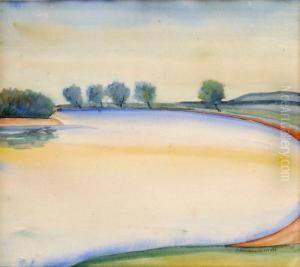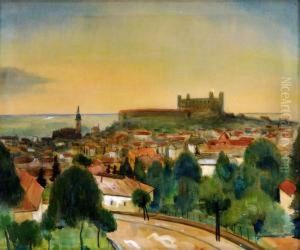Julius Schubert Paintings
Julius Schubert was a German painter, born in 1808 and passing away at the young age of 19 in 1827. Despite his short life, Schubert managed to leave a notable mark on the Romantic movement in art, a period characterized by its emphasis on emotion, individualism, and the sublime beauty of nature. His work, though not extensively documented, reflects the romantic spirit of his time, with a particular focus on landscapes and historical themes.
Growing up in Germany, Schubert was immersed in an environment rich with the burgeoning Romantic movement, which undoubtedly influenced his artistic development. During his brief career, he was known for his ability to capture the emotional atmosphere of a scene, imbuing his landscapes with a sense of longing and melancholy that was quintessentially Romantic. His paintings often depicted dramatic natural scenes, illuminated with a masterful use of light and shadow, which drew the viewer into a deep, introspective experience.
Unfortunately, due to his early death, Julius Schubert did not have the opportunity to fully develop his artistic voice or to see the broader impact of his work. His contributions to the Romantic movement are often overshadowed by his more famous contemporaries, such as Caspar David Friedrich, yet he is remembered by art historians as a talented young artist who captured the essence of Romanticism in his short-lived career. Schubert's surviving works are cherished for their emotional depth and beauty, serving as a poignant reminder of the young artist's potential.

